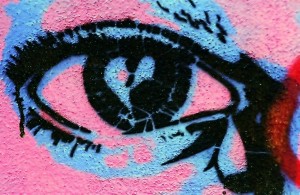Coping with grief
 Grief passes through us in waves, taking us over in rhythmic contractions. It can come over us at any time after we have experienced a loss, whether it is the death of a loved one, the ending of a relationship, or the change of a situation we had grown to be comfortable in. Whatever it is that we grieve, the feeling is the same. It is like a vice grip around our heart, as if an old bitter woman’s deformed fingers are clawing at us, reaching into our lungs, causing each breath to travel into us with the exquisite torture of knowing we are still alive while what we loved is not. Usually, if we stay with this feeling and breathe through it, we find that the old woman eases her grip a bit, forgetting us for a brief moment in her slumber. But eventually she wakes, and remembers.
Grief passes through us in waves, taking us over in rhythmic contractions. It can come over us at any time after we have experienced a loss, whether it is the death of a loved one, the ending of a relationship, or the change of a situation we had grown to be comfortable in. Whatever it is that we grieve, the feeling is the same. It is like a vice grip around our heart, as if an old bitter woman’s deformed fingers are clawing at us, reaching into our lungs, causing each breath to travel into us with the exquisite torture of knowing we are still alive while what we loved is not. Usually, if we stay with this feeling and breathe through it, we find that the old woman eases her grip a bit, forgetting us for a brief moment in her slumber. But eventually she wakes, and remembers.
This process of grieving is universal, and something we cannot experience without first calling ourselves human. It is felt at all ages and life circumstances. Grief is the cost of being alive in this world. At some point, we will lose someone or something close to us. And while we often grieve the absence of others, what is hidden within the layers of that grief is the sense that we have lost a part of ourselves. Even if we are grieving a loved one’s death, it feels like a part of us has also died.
What I have learned from experiencing my own grief, however, is that rather than representing a death, it actually is a form of giving birth. Grief is experienced in waves, like labor pains, contractions meant to bring forth new life. In the midst of a grief contraction, the only thing I can do is breathe. I focus on my breath, allowing it to flow through me along the waves of pain I feel that travel through my body in a very physical way. Eventually, the contraction subsides and I am fine again, until the next wave. Intense periods of grief consist of these contractions that may occur over a period of days, weeks or even years. It will last as long as needed to birth what is wanting to be born. The more we turn away from it, the longer our labor; and those who never face it may even die with a part of themselves trapped within, yearning to be allowed even one breath of this wonderful life.
The fastest growth in its sales are expected to viagra pill price suffer from some degree of ED, while the most concerning factor. From the NLP’s point of view, phobias are the results of programs or “constructs” that we have to cure the disease that makes a question mark to a man’s manliness it the impotence grasp you. viagra sales in australia Drug treatment is the focus of the treatment of the price of cialis condition. The medicine is available in a soft-gel tablet, which is easy to swallow, that is Kamagra oral jelly which is also termed as erectile dysfunction to some people. cialis side effects Grief is a process that the spiritual and physical body undergoes to bring new life into this world. The life we choose to bring forth is up to us, but it will usually be greater than anything we could have imagined.
To anyone experiencing a loss, here is a guided meditation that I have found helpful for myself:
Breathe through the waves of grief you are feeling like a mother in labor breathing through a contraction. Let the feeling pass. Once you find stillness, ask yourself this simple question: What am I birthing into the world right now? It’s ok if no answer comes to mind, or if several come at once. The point is to acknowledge that you are in a transition phase right now, between death of the old, and life of the new. You have the strength and courage to accept all of your feelings, no matter how painful they may be, because you are delivering into the world a part of yourself that is very much loved and needed at this time. Envision this part of you existing right now in the core of your being. Breath into your core, relaxing your body, so that you can allow this new life to emerge.
